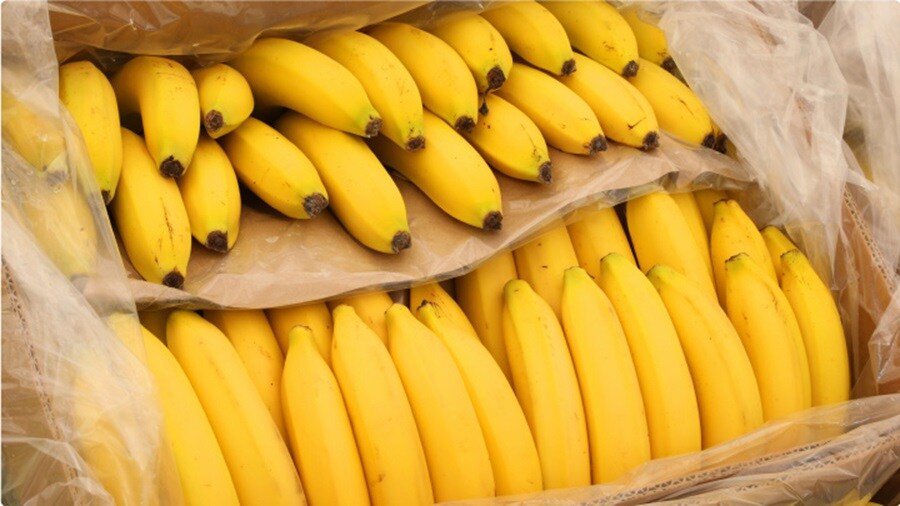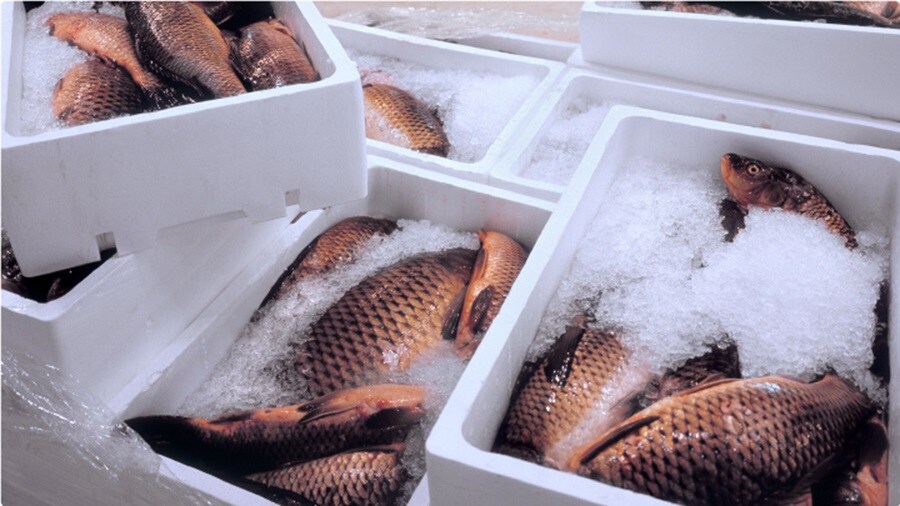"There's definitely a huge opportunity for businesses to transform their operations and decision-making by using data." ( Author: Jerry Yang)
For years the industry was blind to what was happening inside the container. Now, with RCM (Remote Container Management), our customers can easily see the condition of their perishable cargo. This visibility has impressive benefits, such as evaluating product quality and responding proactively, improved customer satisfaction, greater efficiency, and enhanced cold chain performance.
But first, here’s a better understanding of RCM and the Captain Peter platform.
RCM is our digital monitoring system; it’s installed on every one of our reefer containers monitoring temperature, humidity, atmosphere, and GPS location.
RCM’s virtual assistant partner is Captain Peter, the visibility platform our customers use that displays the monitoring data for the conditions in each of their reefer containers.
I’m thrilled that Sealand, and every Maersk Group carrier, offers customers this unique, high-value technology that enables them to make significant, data-driven decisions based on the metrics reported on a range of dashboards and proactive notifications.
From produce to pharmaceuticals, meat, frozen poultry, and fish, all these perishable product segments benefit from the digital insights and data reporting from their smart reefer shipments.
Here are just some of the amazing ways RCM drives value for these cold chains:

Monitoring product quality
Monitoring throughout the reefer container journey allows shippers to evaluate the condition of their temperature-controlled cargo. Here’s a real-life example of how Fyffes, one of the largest tropical produce importers and distributors, used the Captain Peter visibility data to get ahead of a potential product quality problem, address it, and improve the outcome.
Ten reefer containers loaded with Costa Rican bananas were in route to the Port of Philadelphia. Before the vessel arrived at the destination port, Fyffes reviewed the web-based data reporting from Captain Peter and found that the temperature in one of the reefers was slightly elevated, which may have allowed the bananas to ripen faster than the bananas in the other nine containers. With this data insight, Fyffes Quality Control team took action to address this event providing guidance for the end customer. Fyffes explained that it would be advisable to sell that particular shipment of bananas first to maximize its market value and shelf-life. Here we see that cold chain visibility data enabled Fyffes to work more collaboratively with its customer to boost satisfaction and build a stronger business relationship.
From the very beginning, Fyffes North America has seen Captain Peter as a tool to help us better understand and confirm how our fruit has traveled during its ocean voyage. Knowing that the temperatures are in the acceptable range during the ocean journey is fundamental. We need to ensure that we consistently deliver excellent quality to our customers, and Captain Peter is an important tool that ensures this happens. This is a great service that we get from Maersk/Sealand, our preferred ocean shipping service provider.

Bad fish is a bad claim
Cargo claims may be submitted if a shipper believes that their freight was damaged or wasn’t handled properly during the ocean voyage. The claimant will likely seek a refund to offset the cost of the unusable cargo.
We had an experience recently where a shipment of frozen fish from Argentina was exported to the United Kingdom (UK). When the fish arrived at its final destination, the customer claimed that the fish was spoiled. This is where the data insights from Captain Peter were critical to addressing this claim.
The data indicated that the fish was transported under ideal conditions throughout its ocean journey. It was determined that the unsatisfactory temperature conditions likely occurred once the cargo arrived in the UK, either at the cold storage facility or when it was transported inland by truck. In this case, Captain Peter’s visibility data cleared up any suspicions the shipper had regarding what part of the cold chain failed.
Digital connectivity is faster
Some fruits require unique treatments before import approval by the USDA (U.S. Department of Agriculture), such as Cold Treatment. Under these circumstances, reefer container temperature records are checked before clearing the containers at the port gateway. This data requirement will naturally impact cargo velocity and speed to market.
At Sealand, RCM, the only program approved by the USDA for remote data submission, expedites this process as it enables us to monitor and share temperature data digitally with the USDA before the vessel arrives at the port, speeding the approval of Cold Treatment cargo.
Moreover, delays and manual checks are avoided. An added benefit is the visibility of this data in Captain Peter, so importers know the exact records we send to the authorities on their behalf. Without RCM, the USDA must receive manual data logs, which can be time-consuming.
As you can see, visibility data from RCM’s digital monitoring and Captain Peter’s reporting provides significant value in a variety of circumstances:
- Shippers gain critical data for evaluating product quality, and they can use that data to improve customer satisfaction proactively.
- Digital reporting enhances efficiency for all partners to a shipment and helps streamline cold chain performance.
- Visibility data will continue to be a critical enabler for today’s global reefer shipments.
We strive to ensure cargo gets to its final destination in optimal condition. RCM and Captain Peter are only part of what we offer to make this happen. Stay tuned for more insights into cold chain logistics.
无论您需要什么,我们都可以随时为您提供帮助
I agree to receive logistics related news and marketing updates by email, phone, messaging services (e.g. WhatsApp) and other digital platforms, including but not limited to social media (e.g., LinkedIn) from A. P. Moller-Maersk and its affiliated companies (see latest company overview). I understand that I can opt out of such Maersk communications at any time by clicking the unsubscribe link. To see how we use your personal data, please read our Privacy Notification.
By completing this form, you confirm that you agree to the use of your personal data by Maersk as described in our Privacy Notification.

